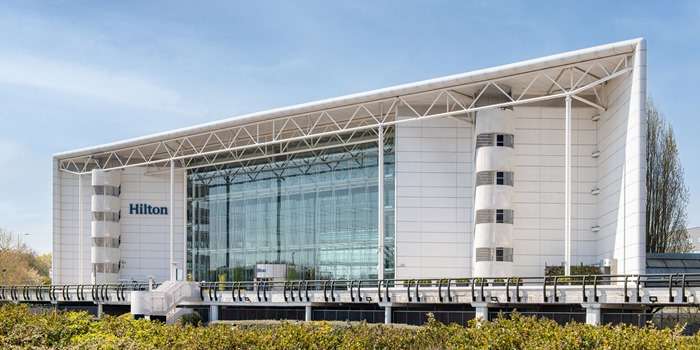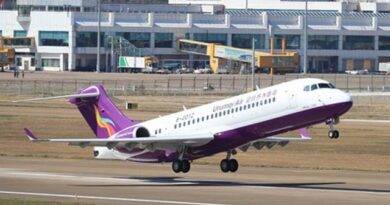The Rise of Airport Hotels: Who Uses Them and How They Can Become More Attractive
Airport hotels have become an integral part of the travel industry. They cater to a diverse range of travelers who value convenience and comfort. From business travelers with tight schedules to families seeking a restful layover, these hotels play a vital role in ensuring a smooth travel experience. However, as the hospitality landscape evolves, there’s a growing opportunity to transform airport hotels into destinations in their own right. This article delves into the various types of travelers who frequent airport hotels. It also explores strategies to make these establishments more attractive and touristic.
Who Uses Airport Hotels?
- Business Travelers: Business travelers, who often have fast-paced schedules, rely on airport hotels for their proximity to terminals and efficient services. Whether catching an early morning flight, attending a quick meeting, or navigating an extended layover, these travelers prioritize convenience. Airport hotels that offer seamless check-ins, business centers, and comfortable workspaces are particularly appealing. According to a 2022 Global Business Travel Association (GBTA) report, over 60% of business travelers prefer staying at airport hotels for their short stay needs.
- Families and Leisure Travelers: Families, especially those traveling with young children, often choose airport hotels for their ease of access to the airport. Layovers or unpredictable flight schedules can be challenging, and airport hotels provide a practical solution. These travelers appreciate family-friendly amenities such as spacious suites, play areas, and kid-friendly dining options. For example, the Hilton London Heathrow Airport offers family packages that include special perks for children, enhancing the overall stay experience.
- Overnight Layover Passengers: Passengers facing long layovers or delayed flights find airport hotels to be a haven for rest and rejuvenation. Quick check-ins, 24-hour room service, and efficient shuttle services are crucial for this group. The TWA Hotel at JFK Airport, with its rooftop pool overlooking the runway, exemplifies how airport hotels can turn a layover into a unique experience.
- Event Planners and Attendees: Airport hotels are increasingly popular as venues for conferences, meetings, and corporate events. Their proximity to international airports makes them an ideal choice for events with attendees flying in from different parts of the world. The Sheraton Frankfurt Airport Hotel, for example, offers extensive conference facilities and seamless connectivity to the airport, making it a preferred choice for global events.

Making Airport Hotels More Touristic and Attractive
- Enhancing Leisure Facilities: To transform airport hotels into more than just transit points, enhancing leisure facilities is key. Spas, swimming pools, fitness centers, and rooftop bars can make these hotels more appealing to a broader audience. The Sofitel London Heathrow, for instance, offers a luxurious spa experience. This attracts not only travelers but also locals looking for a relaxing escape.
- Promoting Local Culture and Attractions: Incorporating elements of local culture into the hotel’s design and services can create a richer, more immersive experience for guests. Airport hotels can showcase local art, offer regionally inspired cuisine, and organize guided tours of nearby attractions. The Crowne Plaza Changi Airport in Singapore features a nature-inspired design reflecting the city’s gardens. This is an example of how local culture can be integrated into the hotel experience.
- Creating Unique Experiences: Offering unique, memorable experiences can set airport hotels apart from competitors. Live music events, themed dinners, and pop-up markets can attract guests looking for something beyond just a place to sleep. The Grand Hyatt at San Francisco International Airport has successfully hosted local culinary events, drawing not just travelers but also residents from nearby areas.
- Incorporating Technology and Sustainability: Modern travelers increasingly seek out hotels that embrace technology and sustainability. Smart rooms with voice-activated controls, mobile check-ins, and high-speed Wi-Fi appeal to tech-savvy guests. Moreover, sustainable practices, such as energy-efficient lighting, water conservation systems, and eco-friendly amenities, resonate with environmentally conscious travelers. A 2023 survey by Booking.com found that 71% of travelers prefer staying at eco-friendly accommodations. This situation underscores the importance of sustainability in hotel choice.
- Expanding Dining Options: Dining plays a significant role in a hotel’s appeal. Airport hotels can elevate the guest experience by offering diverse dining options, from quick bites for travelers on the go to gourmet dining experiences. Collaborations with renowned chefs or featuring local culinary talent can add a unique flavor to the hotel’s offerings. The Fairmont Vancouver Airport, for instance, showcases Pacific Northwest cuisine, providing guests with a taste of local flavors without leaving the airport.
Embracing Futuristic Design
A truly visionary approach to airport hotels could involve innovative architectural concepts like a rotating hotel structure that offers panoramic views and is directly connected to the airport terminal. Imagine a hotel that slowly rotates, allowing guests to enjoy changing vistas throughout their stay—from watching planes take off and land to panoramic views of the surrounding cityscape or landscape. This design could be coupled with direct access to the airport through enclosed walkways or even private shuttles, ensuring maximum convenience. Such a concept not only provides a unique and dynamic experience for guests but also serves as an architectural landmark, making the airport hotel a destination in itself. This blend of cutting-edge design and seamless integration with airport facilities could redefine what travelers expect from airport accommodations in the future.
Conclusion
Airport hotels have transformed. They are no longer just stopover points. Instead, they have become essential hubs in the travel industry. By enhancing their facilities and promoting local culture, they offer much more. These hotels now provide unique experiences. Plus, they embrace technology and sustainability. As a result, they are becoming destinations in their own right. This approach not only appeals to transit passengers but also attracts travelers looking for a memorable stay.
Airport hotels can stand out in a crowded market with the right strategies. They can leave lasting impressions on their guests. This approach turns the airport hotel experience into more than just a convenient overnight stop.


